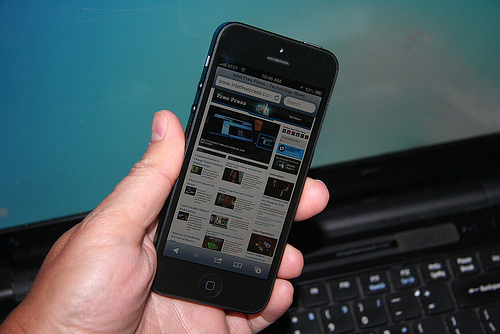 Love it or hate it, if you’re the boss you’re pretty much stuck with the reality of the bring your own device (BYOD) workplace. You can pretend it isn’t an issue—or ban personal devices and believe that employees will follow along—but trust me, mobile is such a force that keeping your network and data away from staffers’ personal devices is practically impossible. Doing so could even derail your enterprise mobility initiatives.
Love it or hate it, if you’re the boss you’re pretty much stuck with the reality of the bring your own device (BYOD) workplace. You can pretend it isn’t an issue—or ban personal devices and believe that employees will follow along—but trust me, mobile is such a force that keeping your network and data away from staffers’ personal devices is practically impossible. Doing so could even derail your enterprise mobility initiatives.
BYOD is growing because of the impact it has on individual employees: Mobile devices enable greater flexibility to work when and where is most convenient, allows access to more tools for personal productivity, and lets people more easily blend work with personal. A survey by Gartner last year found that four in 10 enterprise employees use their personal devices for work—and many admit to doing so without their employer’s knowledge.
The reality is that mobile devices will creep in regardless of what you do, and I think one of the most logical ways to deal with this trend could be outsourcing to managed service providers (MSPs). In fact, this could signal a new opportunity for MSPs: BYOD compliance as a service.
BYOD Hurdles and Hoops
Most BYOD concerns center around data security. With employees (and even entire departments) routinely sidestepping IT and security—creating what’s referred to as shadow or stealth IT—nearly every company is at a risk of having sensitive corporate data stored on a personal device or accessed via a personal app.
However, concerns about security and privacy are often double sided: Employees are equally worried about employers intruding on their private lives by accessing their personal information via their smart devices.
The main problem is that most businesses don’t have clearly spelled out BYOD policies, and, most likely, legislation is all over the map. Without a proper policy in place, both employees and employers are left hoping that everything will work out. Are you willing to leave that to chance?
How can companies balance data security and enterprise mobility while addressing the privacy concerns of their employees? Needless to say, there are plenty of challenges. For one, compliance and privacy requirements will not be the same for all companies. Plus, with the rise of cloud-based services, the technological make-up of organizations is more complex than ever.
How MSPs Might Help
Enterprise mobility—including BYOD—is turning up the pressure on businesses to upgrade their IT infrastructure, which may put a strain on resources. Also, many small to mid-size companies lack the in-house tech support required to meet these needs. While they figure it out, employees stick to the status quo—including using their mobile devices in their day-to-day work.
This is where an MSP can make a difference, delivering the IT assistance needed to support a BYOD environment.
Security. Since security is a top concern, it’s where companies will likely start looking first for solutions. Considering they have the expertise and resources to handle a broad spectrum of security issues, MSPs are a logical choice. MSPs could also help companies educate employees on the security risks of BYOD, as well as on how to safeguard both their personal and corporate data.
Data management. Businesses can’t afford to treat BYOD as a foreign subject, and they can’t ignore how essential it’s become. Data control and management is a critical aspect of integrating BYOD into an overall business strategy. While MSPs can’t control how data is being handled on premise, they can—and should—offer best practices for managing factors like redundancy and disaster recovery, similar to what they have been doing for other cloud-based platforms and services.
Compliance. With their in-depth understanding of compliance models, MSPs can offer excellent audit management support. In terms of BYOD compliance, most MSPs are probably (hopefully!) managing their own compliance needs, and may already have a set of tried and tested policies suited to a BYOD environment. MSPs can then use these policies to help companies realistically meet their compliance needs
MSPs can capitalize on BYOD by building a broad solution ecosystem for organizations, while simultaneously helping them solve a problem that isn’t going away any time soon. If anything, BYOD will only continue to grow and evolve, as our mobile environment does the same.
Additional Resources on this Topic:
What are VARs and MSPs Thinking about BYOD, Cloud Services and Managed Services?
The Mobile Movement Goes Beyond Mobile Commerce
Is BYOD DOA? Not for MSPs
photo credit: BYOD iPhone via photopin (license)
This post was brought to you by IBM for MSPs and opinions are my own. To read more on this topic, visit IBM’s PivotPoint. Dedicated to providing valuable insight from industry thought leaders, PivotPoint offers expertise to help you develop, differentiate and scale your business.
This article was originally seen on MillennialCEO blog.